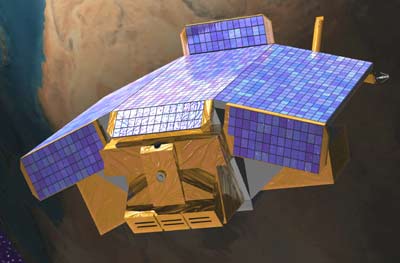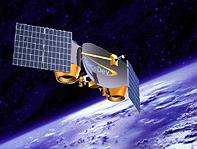CHIPSat
CHIPSat (also Explorer 82 ) is a small research satellite to study the hot gas in space by means of ultraviolet spectroscopy.
The development of CHIPSat was funded as a single project from the ambitious scale University Class Explorer Program of NASA. Observation instrument is the most Space Sciences Laboratory, University of California, Berkeley developed spectrometer CHIPS ( cosmic hot interstellar plasma spectrometer ), which observed a field of 5 ° × 26 ° with a spectral resolution of 150 in the ultraviolet range 9-26 nm wavelength. The satellite bus developed by SpaceDev. CHIPSat was launched into low Earth orbit on 13 January 2003 (January 12, according to local time) from Vandenberg Air Force Base on a Delta II 7320 rocket together with another satellite ( ICESat ).
From the spectra of CHIPSat the state of about one million Kelvin hot gas should be derived, which fills the local bubble in the interstellar medium of our Galaxy in the solar neighborhood. The results of CHIPsat showed, however, that by this gas does not generate UV light which can be measured in Earth orbit. The satellite is used after detection of the absence of the appropriate radiation for a short period of time for the observation of the UV spectrum of the sun.
On 11 April 2008 the still fully functional CHIPSat was switched off by its builders as the NASA ready made no money for the further data reception.








